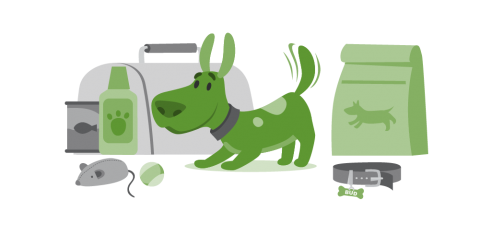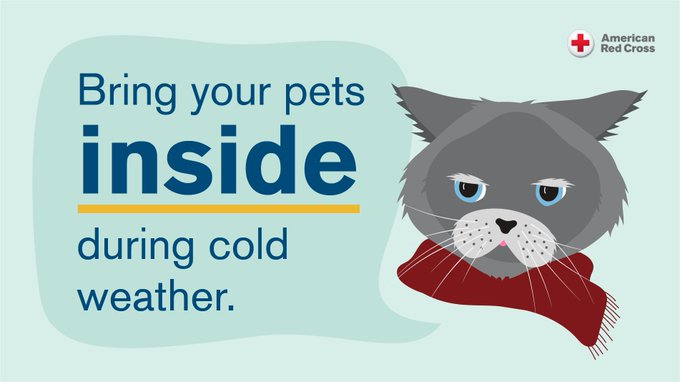Protect Pets During Cold Weather
Cris Alarcon, News@InEDC.com
PLACERVILLE, California (InEDC) Nov 30, 2022 — Bring your furry friends inside & protect them during cold weather:
- Clean your pet’s paws; ice-melting chemicals can make them sick
- Make sure you have plenty of food for your pet
- Have a first aid kit for your pet in case of an emergency
Build a Kit for Your Pet
Just as you do with your family’s emergency supply kit, think first about the basics for survival, such as food and water. Have two kits, one larger kit if you are sheltering in place and one lightweight version for if you need to evacuate. Review your kits regularly to ensure that their contents, especially foods and medicines, are fresh.
Here are some items you may want to include in an emergency kit for your pet:

- Food. Keep several days’ supply of food in an airtight, waterproof container.
- Water. Store a water bowl and several days’ supply of water.
- Medicine. Keep an extra supply of the medicine your pet takes on a regular basis in a waterproof container.
- First aid kit. Talk to your veterinarian about what is most appropriate for your pet’s emergency medical needs.
- Collar with ID tag and a harness or leash. Include a backup leash, collar and ID tag. Have copies of your pet’s registration information and other relevant documents in a waterproof container and available electronically.
- Traveling bag, crate or sturdy carrier, ideally one for each pet.
- Grooming items. Pet shampoo, conditioner and other items, in case your pet needs some cleaning up.
- Sanitation needs. Include pet litter and litter box (if appropriate), newspapers, paper towels, plastic trash bags and household chlorine bleach to provide for your pet’s sanitation needs.
- A picture of you and your pet together. If you become separated from your pet during an emergency, a picture of you and your pet together will help you document ownership and allow others to assist you in identifying your pet.
- Familiar items. Put favorite toys, treats or bedding in your kit. Familiar items can help reduce stress for your pet.
Tips for Large Animals
If you have pets such as horses, goats or pigs on your property, be sure to prepare before a disaster.
In addition to the tips above:
- Ensure all animals have some form of identification.
- Evacuate animals earlier, whenever possible. Map out primary and secondary routes in advance.
- Make available vehicles and trailers needed for transporting and supporting each type of animal. Also make available experienced handlers and drivers.
- Ensure destinations have food, water, veterinary care and handling equipment.
- If evacuation is not possible, animal owners must decide whether to move large animals to a barn or turn them loose outside.
